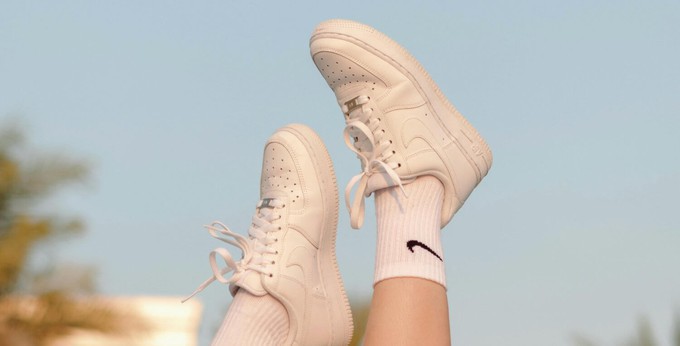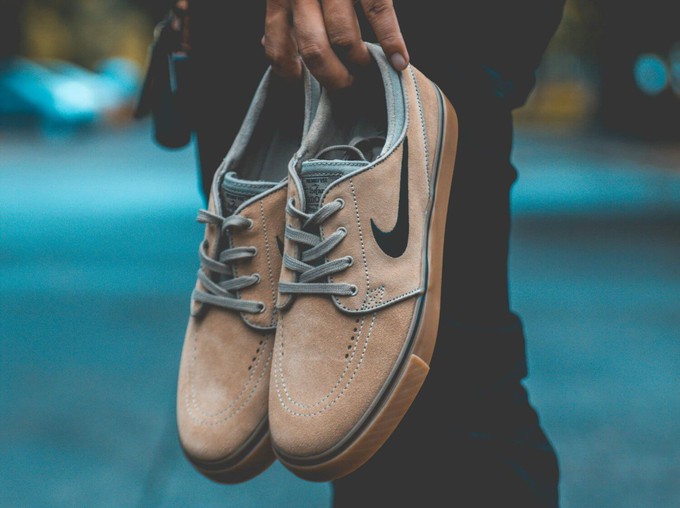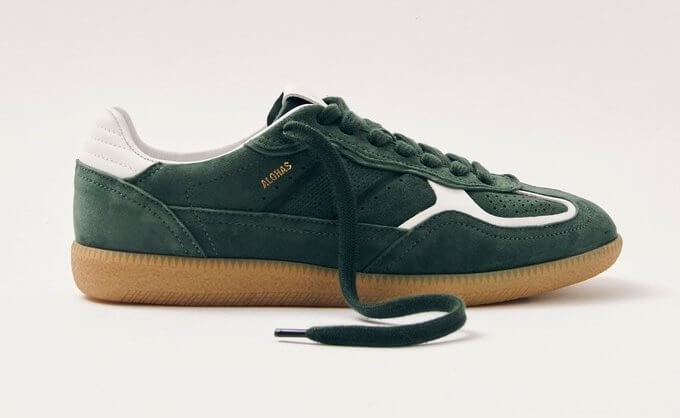- Clothes
- Bags
- Accessories
-
Inspiration
- Shoes
Is Nike Ethical? The Truth Behind Its Empowering Image

Its minimalist but instantly recognisable swoosh logo. Inspirational ads that spin stories and make us feel that we can “just do it," too.
We can’t blame you if, when you hear ‘activewear’, you immediately think of Nike.
If you’re sprinting towards a fairer wardrobe, though, is it the right choice? In other words: is Nike as ethical as it appears?
Let’s look at it from both a human and environmental perspective.
Does Nike have any ethical issues?

Nike’s sweatshop scandals and lack of transparency
This brand seems to have a bit of a history of getting called out and exposed, occasionally doing something about it, but then finding itself involved in similar problems.
For example:
- Nike’s sweatshops scandal in the 90s – While it appears to have been using sweatshops since as early as the 70s, Nike was first exposed for it in 1991. Jeffrey Ballinger, an American labour activist, published a report on its Indonesian factories hiding unsafe working conditions, below-minimum wages, and even child labour
- Early 2000s – The same problems were explored even further in the documentary Behind the Swoosh
- Another step back in 2017 – Nike did a U-turn on its commitment to the WRC (Worker Rights Consortium), blocking external labour rights experts from monitoring their supplier factories
- Pandemic problems – Nike went under fire again for refusing to settle $2.2 million in unpaid wages and benefits to over 4000 garment workers in Cambodia and Thailand, abruptly dismissed during the pandemic
- Transparency issues – Nike does disclose some details on their suppliers but, in our opinion, not enough. In fact, the Fashion Transparency Index only ranked it at 41-50% in transparency. We also don’t believe Nike is ethical because it doesn’t guarantee a living wage across its supply chain
Empowering women? Not always!
Nike is particularly famous for its campaigns on women's empowerment and inclusiveness… and yet the reality doesn’t seem to match that image.
Sure, this brand does do a lot, from diversity programmes to big donations, but some other reasons why Nike isn’t as ethical as it appears are:
- Problematic culture – In 2018, two former women employees sued Nike, accusing the brand of fostering a culture of gender discrimination and even sexual harassment
- Athletes speaking up – Alysia Montaño had to fight with Nike to keep their sponsorship and paycheck when she got pregnant, and so did Allyson Felix, who was offered 70% less. Luckily, the sportswear giant made some changes to their maternity policy after this came out, but it makes us wonder: how exploited are the people with less visibility?
Animal rights: is Nike cruelty-free?
Much like with the welfare of its workers, it's hard to know the truth about the animals involved in its production process.
While Nike does choose recycled and vegan leather sometimes, Nike also uses wool, down, silk, and regular leather but doesn’t specify their sources.
On the plus side, it recently committed to the Responsible Wool Standard, avoiding mulesing (the removal of strips of skin to prevent parasitic infections, often without anaesthesia), and is part of PETA's long list of brands banning exotic animal skins.
Is Nike actually environmentally friendly?

Overall, Nike has made several steps forward when it comes to reducing its environmental footprint.
For example, it’s a founding member of the Sustainable Apparel Coalition and uses lower-impact materials in some of its collections (like organic or recycled cotton, recycled leather, and recycled polyester). It also launched a refurbished programme to reduce waste by giving a second chance to their footwear.
So far so good, right?
There’s just one main problem when it comes to Nike’s environmental impact and approach:
Lack of transparency
- Not transparent enough – As seen before, it only scores 41-50% in transparency. For example, Nike sets lots of eco-friendly targets but doesn’t seem to provide enough evidence to show that it’s actually working towards them
- Greenwashing – Nike makes many eco-friendly claims without backing them up. So, it’s been accused of greenwashing and even faced a lawsuit over it
So, is Nike an ethical brand?
The world of fairtrade fashion isn’t black and white, but overall, we don’t believe that Nike can be considered an ethical brand.
It also seems to be working more towards sustainability (from an eco-friendly perspective) than ethical goals from a humanitarian point of view.
So, we believe that one of its priorities should be guaranteeing living wages and fair working conditions across all stages of its supply chain.
Finding more sustainable and ethical Nike alternatives
If you want to support some activewear and footwear brands that are more ethical than Nike, where can you start?
Right here!
At Project Cece, we brought hundreds of fair trade brands in one place, and that includes:
- Wellicious, making compostable activewear
- Iron Roots, making plastic-free activewear
- ACBC, an ethical active footwear brand
- Alohas, an on-demand brand with a good range of trainers
Find even more ethical Nike alternatives in our sustainable sportswear and sneakers sections in particular.
Share our story
Related articles
Are Your Favourite High Street Brands Worse Than Primark?
You stopped shopping there after realising how unethical it is? That’s a great start, but you might be supporting brands that are even WORSE than Primark!
Child Labour in the Fashion Industry: Is It Still a Thing?
Cheap fast fashion clothes—yes, even the ones in your wardrobe—often hide a high cost. Here’s the harsh reality of child labour in fashion (& what you can do).
The Devil Wears… Ultra Fast Fashion. Do You?
Sweatshops, environmental damage, and a negative effect on young consumers’ mental health: meet ultra fast fashion and its sinful consequences.
Project Cece is a platform that collects ethical fashion from vetted brands and shops in one place. Browse ethical fashion for women and men and find items that fit your style, budget and values!

_large.png)


